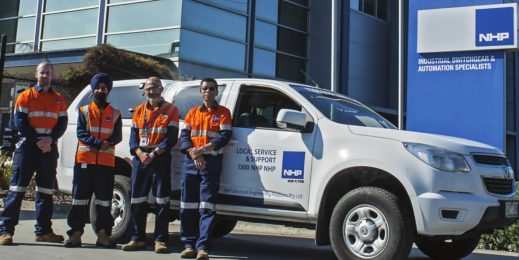
Woodside empowers all employees to build apps, boosts safety, increase productivity
Woodside Energy is Australia’s leading natural gas producer , and has been established for over 65 years. A key priority for the company is ensuring that the 3,500 people who work in the business have access to the information they need to do their job well and safely.
Using Power Platform, Woodside has empowered people to develop apps to meet their specific day to day needs, improving efficiency and enabling automation of manual processes.
While the company has a core digital team that can develop apps for the business, Woodside’s 10-week Build an App bootcamp spread Power Apps, Power Automate and Power BI capability far and wide. Now Woodside staff are able to develop and use apps that manage everything from conference bookings to site access request management, shift handovers to cyclone response planning.
The digital team will step in to help create or refine an app when it is intended for use by more than 20 people, or if the citizen developer relocates to another area. But for the most part employees now feel empowered to innovate and to automate work processes where it makes sense, and use Microsoft Teams to collaborate and communicate about what they are developing.
Woodside’s digital team meanwhile focusses its efforts on apps which are expected to have widespread company application and potentially large-scale user bases.
For example the digital team helped create a “swing feedback” app to enable frontline operations team members to easily manage and track data from their performance feedback conversations held during their rostered swing rotation on site. A similar app is being developed for maintenance crews.
Arul Adaikalam, Automation and Willow product manager at Woodside Energy says that:
Power Platform and Power BI enabled us to drive creation of business-led transformative solutions increasing the productivity of our workforce.
It gets data out of spreadsheets , making data more accessible,” which in turn allows the business to act faster and smarter. Since it first introduced Power Apps, more than 80 apps with significant usage have been developed to support employees and streamline practices.
Early successes

The first app developed was designed to help manage shift handover, so that an incoming Woodside crew is fully aware of what needs to be done and what issues may have arisen during the last shift. This replaces a cumbersome manual process (that used Microsoft Word) with an easy to access app, promoting efficiency and safety.
The app also acted as a scaffold for a second app developed in response to COVID-19. That app allows people to access information about pandemic related work practices, and also provide their own health related data to ensure safe return to workplaces. But did people use it?
Adaikalam says; “As soon as COVID hit we had to respond really quickly. We set up the crisis team and we had to get forms out to collect information from our people and also take care of people’s health and their situation. The Power Platform provided a huge solution in that instance.
Adaikalam says; “Then when subsequent emergencies happened, it was so easy. For example, we use Power Platform for our cyclone readiness preparation.” That app – developed over a couple of days– helps prepare people working in remote locations who may need to evacuate as a cyclone approaches, and arranges transport for them.
Woodside responded to the challenges in the current operating environment by streamlining access to information, accelerating decision making and automating processes.
Governance and guardrails
Recognising the power of these apps, Woodside is encouraging people across the organisation to develop their own app proposals in response to challenges that they face in their daily roles. A governance structure has been established to manage data access, security and quality control.

All apps must follow Woodside’s secure by-design principles, and although accessibility on the user’s personal devices outside the Woodside network has enabled much broader connection and collaboration the digital team has developed a data leak prevention policy to make sure people can’t store data on social networks or other external sites, and can only use specified data sharing sites such as SharePoint.
To ensure the quality of apps the digital team established a clean-up process to check apps, archive them – and where it makes sense, promote useful apps as templates for other people to use. Of the apps developed so far, around 15 are being supported directly by the digital team.
Adaikalam says; “We send out a welcome email when we see some new developer in the system saying that ‘you know what – you are responsible for managing that app and any data permissions associated with that app’.
“That way – and through the training sessions – we clarify that it is their responsibility to manage the permissions and the privacy and the data security of that app.”
Adaikalam adds; “If we see that a large number of people across the organisation – perhaps 1000 users – is using it then we will start to have a conversation about support of that app by the digital team.” Digital can also take over an app if the citizen developer changes roles in Woodside or moves on.
“We basically came up with the three-tiered support model, bronze, silver and gold, and each of these support tiers had its own SLAs and costs associated with it,” he says.
But the most important part of the Citizen Development initiative is empowered employees and business-driven innovation. So our next step is to enable and educate rest of our workforce to help increase their productivity through the Power Platform.









